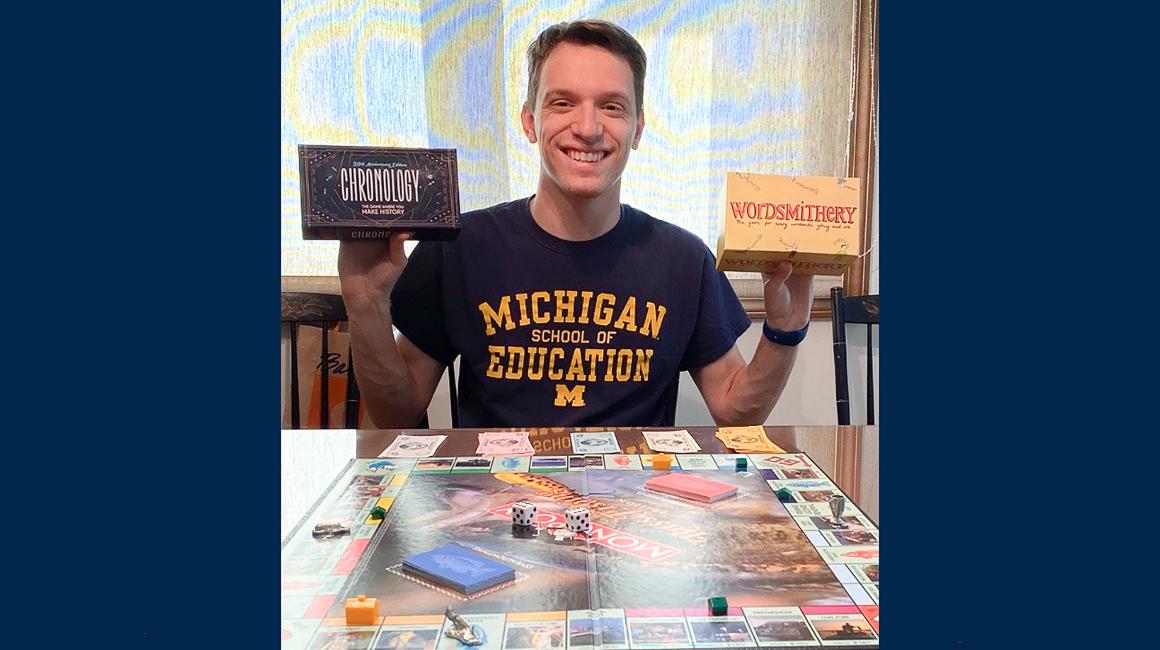
Out of Michigan's 15 public universities, UM-Dearborn is the only one to hold the title of commuter campus.
But what does that mean when colleges, on average, now have a larger percentage of students “off-campus”, up to 78%? And more and more students are looking to take remote course offerings at two- and four-year institutions to better fit into their busy lives.
Combine this with UM-Dearborn’s active student body — it’s one of the few college campuses where enrollment is projected to increase this fall — who have the opportunity to participate in more than 250 student organizations.
So what’s life like for students at Michigan’s only public four-year commuter campus? It’s different for everyone — some people live in their childhood homes with family; others moved to Dearborn after living states or continents away. In this summer series, graduate student Rudra Mehta goes right to the source, the UM-Dearborn students, to hear their stories of what life is like outside of the classroom.
Ezra Houghtby, English Major, senior
Where he lives:
“I live with my mom, dad and two cats, Maisy and Daisy, in Livonia. I know some people want to move out right after they graduate high school, but I was happy to be home. With so many new things happening, it was nice to have home be my constant. I can reset and recharge there when things get busy with school and work.”
What he enjoys most about living at home:
“My family, obviously. I like playing board games. My parents, even though they have other things they could be doing, humor me with this. Monopoly is my favorite — I like to try to get all of the railroads — but it takes a long time. Usually we play Face10. That’s a card game where a player has to fulfill different objectives to win.
My dad and I recently refurbished a wooden chest that belonged to my great aunt. It was scratched up and painted a forest green. We sanded it, stained the top Ipswitch Pine and painted the sides black. We now use it to store blankets. So we gave something that could have been discarded a new life. There’s a lot of satisfaction in that.”
How he found on-campus work:
“For three years, I worked as the UM-Dearborn Men’s Ice Hockey Team manager. I loved it. Before my freshman year, I went to a welcome day and met an orientation leader who told me about his on-campus job working with Athletics. I liked watching ice hockey and was a manager of varsity golf and on varsity in high school for my team. So I asked how I could do that too. A week later he put me in contact with the coach because there was an opening and I was fortunate enough to land that job.
There are so many different ways to work on campus and get paid for it. My advice for students looking for on-campus employment — other than looking on the U-M career website — is to ask. If you have a sincere interest or passion in an area, the people here want to connect you to the right place. So, if you like art, check out the campus gallery or reach out to the Language, Cultures and the Arts department. If you like sports, go to games and get in touch with the Athletics department to see what jobs are available. Put yourself out there and ask — you’ll find a job you like.”
How he balances work, school and family life:
“Sometimes, work and activities on campus have made me spend days away from family. Since I commute from home, I see my family regularly. Having my own time can be nice, but I value family a lot, so I miss them. If you’re looking to work on campus, make sure you are passionate about it and can manage the school schedule. Whatever you do, balance it out. See yourself career trained.”
What he’s learned about UM-Dearborn since freshman year:
“UM-Dearborn may be a commuter campus, but that does not mean that the experiences of our student body are somehow less authentic than a university with on-campus housing. There is a real sense of family here.
People who may not be familiar with UM-Dearborn may perceive it to be strictly a commuter campus. I know a lot of classmates who have to leave here to go to a job, pick up their children, or fulfill other obligations. But, even with everyone’s busy schedules, there is a real sense of family here. We have small classes here — the advantage is that people get to know each other quickly. We know where to find one another, how to work together, and always pick each other up when one of us falls. It feels like a second home. We have a lovely campus within an even more beautiful city, and I would not trade it for anything.”
###
Article by Rudra Mehta


